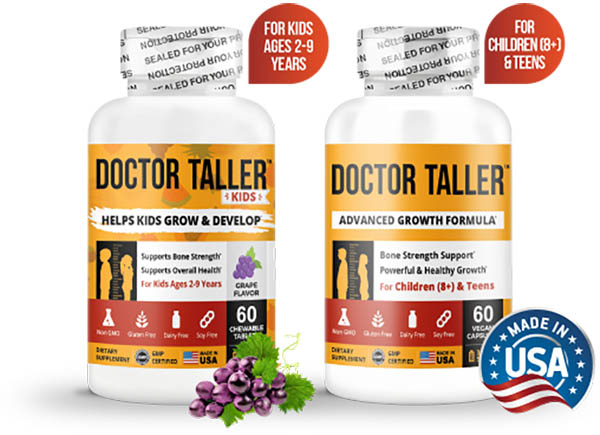Smoking is a well-known health hazard, with its association to a multitude of serious diseases like lung cancer, heart disease, and emphysema widely recognized. The dangers of smoking have been broadcasted far and wide, with public health campaigns aimed at discouraging this harmful habit. While many are familiar with the dire consequences of smoking, there’s also a lingering myth that suggests it can stunt growth. In this article, we will delve into the truth behind this belief and shed light on whether smoking truly has the power to hinder one’s physical development. So, let’s explore this topic and separate fact from fiction when it comes to the impact of smoking on growth.
Does smoking stunt your growth?
Simply put, ABSOLUTELY.
Smoking can have a serious impact on your body that eventually prevent you from growing as you should. Smokers tend to grow shorter over time, and kids born to smoking mothers are more likely to be delivered preterm or with weights below the normal rate.

Smoking effects on smokers
Although other compounds in cigarettes can also be blamed for stunted growth in heavy smokers, the major culprit behind smokers’ slowed growth is nicotine.
By reducing a smoker’s appetite, nicotine can potentially slow or inhibit growth. It does this by turning on a brain circuit that reduces hunger. This can make it difficult for smokers to receive the nutrients they require daily. In addition, a 2008 study found that smoking also had a negative impact on endochondral ossification during skeletal development, which can stunt one’s growth [1].
Smoking effects on non-smokers
The risks to those who are exposed to secondhand smoke are the same as for smokers. This is because they also breathe in the same air of harmful compounds that are present in tobacco smoke. They will also be more susceptible to smoking-related illnesses. Some short-term effects from exposure to second-hand smoke include:
- Coughing
- Headaches
- Eye and nasal irritation
- Sore throat
Children are particularly vulnerable to the negative effects of secondhand smoke if their mothers smoke during pregnancy. This can cause stunted growth in children later in life.
Other harmful effects of smoking
Going Blind
Smoking has no positive effects on your eyes. It can even increase the possibility of macular degeneration – the primary cause of blindness in persons over 65. If you smoke, your risk of developing AMD is two times higher than it is for nonsmokers [2]. Compared to people who don’t smoke, you have a 2-3 times greater chance of developing cataracts [3].
Type 2 Diabetes
Smoking increases the risk of type 2 diabetic complications, such as reduced blood flow to the legs and feet. This may result in infection and need amputation of a limb. In case you’re wondering: Yes, it is possible for you to lose a foot or a leg simply by smoking.
Lung diseases
A child’s lung capacity increases as they age. Their body gets bigger and stronger as time goes on as the ribcage expands, allowing the lungs to expand to new proportions. However, smoking by teenagers can halt this process, thus preserving their lung capacity. According to one study, published in the Washington Post, teenagers who did not smoke at age 15 breathed 8 percent less air per second than youngsters who did [4].
Hip Fractures
Smokers have a quicker loss of bone density than non-smokers, which increases their chance of fracturing bones in vulnerable places like the hip. By quitting smoking, you may slow down this process and continue to move your muscles easily.

Ways to resist tobacco cravings
One of the best ways to deal with the damaging consequences of the habit on your health and the health of people around you is to stop smoking. It’s difficult to stop smoking, but the more assistance and encouragement you can obtain, the more likely it is that you will succeed in quitting for good.
Consider Nicotine Replacement Therapy (NRT)
When you suddenly stop smoking, a lack of nicotine can cause headaches, drain your energy, and have an impact on your mood. Nicotine replacement therapy is a method for treating people with tobacco use problems that has received medical recognition. It aids in quitting smoking or chewing tobacco. Here are some specific forms of NRT:
- Nicotine gum provides the body with nicotine. When you chew the gum as instructed, nicotine is absorbed into your body through the lining of your mouth.
- Nicotine lozenges are pills that contain a minor quantity of nicotine. You slowly inhale it while allowing the lozenge to dissolve as it is positioned between your gumline and cheek. Your circulation receives the nicotine as it is gradually absorbed by the mouth lining.
- Nicotine inhaler gives you a little daily dosage of nicotine. A cartridge within the nicotine inhaler releases nicotine vapor as you inhale. After being absorbed by the lining of your tongue and throat, the nicotine enters your blood.
Avoid Alcohol and Other Triggers
It is usually more difficult to maintain your no-smoking objective while you are drinking alcohol. So try to limit alcohol if you are determined to quit smoking. Similarly, if you frequently smoke while consuming coffee, think about switching to tea or other healthful beverages. Find something else to do if you regularly smoke after eating, such as going for a stroll, chatting with a friend, or chewing gum.
Our everyday routines frequently include triggers, whether it’s passing a bar on the way home from work or spending time with friends who use it. Make an effort to arrange your life such that you are less likely to come into contact with your triggers. After work, take a different route home. Spend more time with non-using friends and relatives.
Have a support system
Triggers are just everything that increases your desire to consume alcohol or drugs. They can be just about anything, including:
- People
- Objects
- Moods and feelings
- Places
- Times of the day or week
Sharing your plans with loved ones and close friends will help you stay more motivated and determined to quit smoking. Be honest with them about your feelings and struggles so they can understand what they can do to help you.
Your body and health will suffer greatly once you smoke. Smoking can hinder one’s growth in addition to having a detrimental effect on the health of smokers. At any age, giving up smoking is always the best choice for your health. You can use some of the methods suggested above to hasten the process of quitting smoking. If you’re still in your growing years, smoking can destroy your health and severely stunt your growth, so try to quit as soon as possible. We wish you the best.



